
transforming hypertension care with an innovative habit building app
Supercharge teamed up with EGIS Pharmaceuticals, a leading pharmaceutical company, to create an innovative habit-building app aimed at improving treatment adherence.
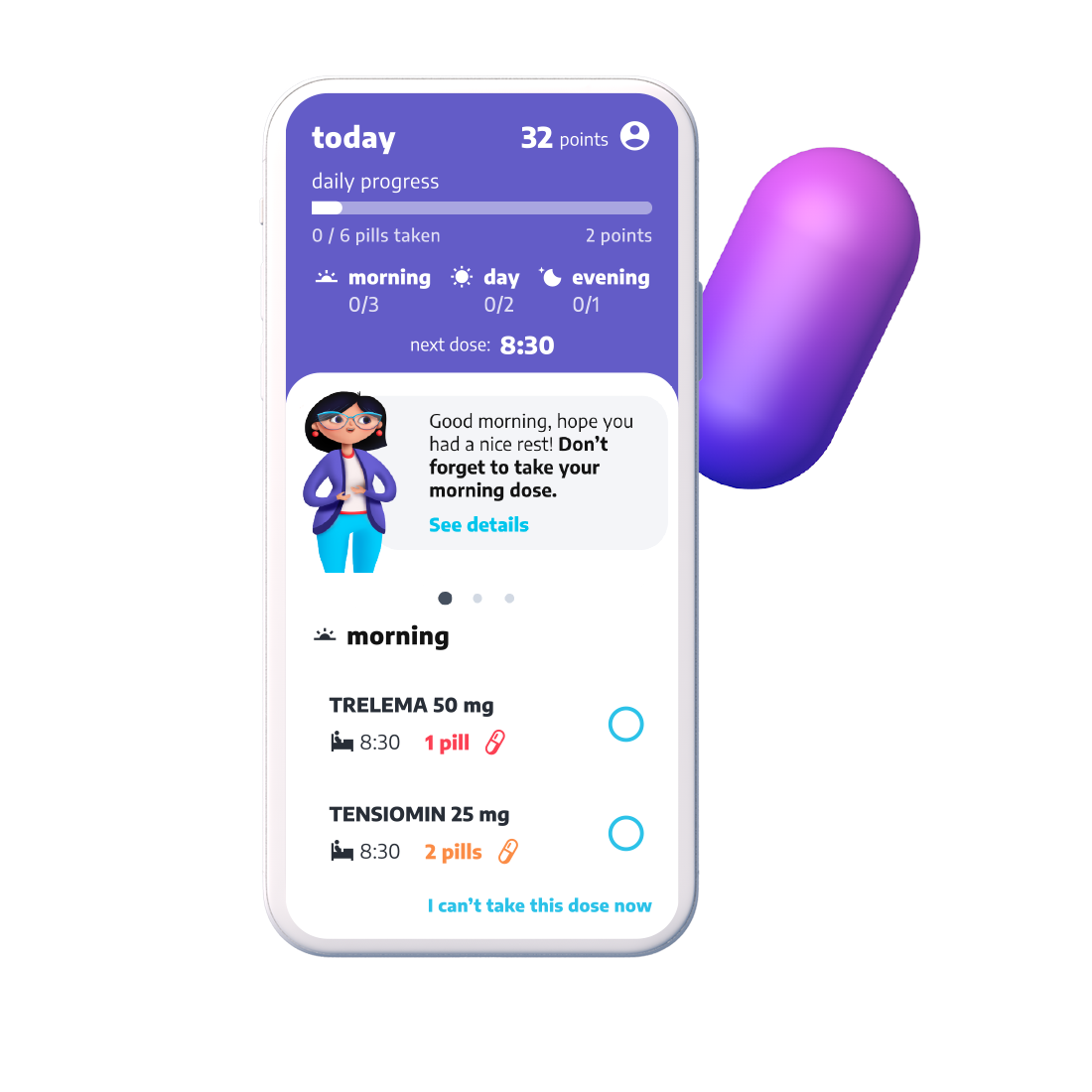
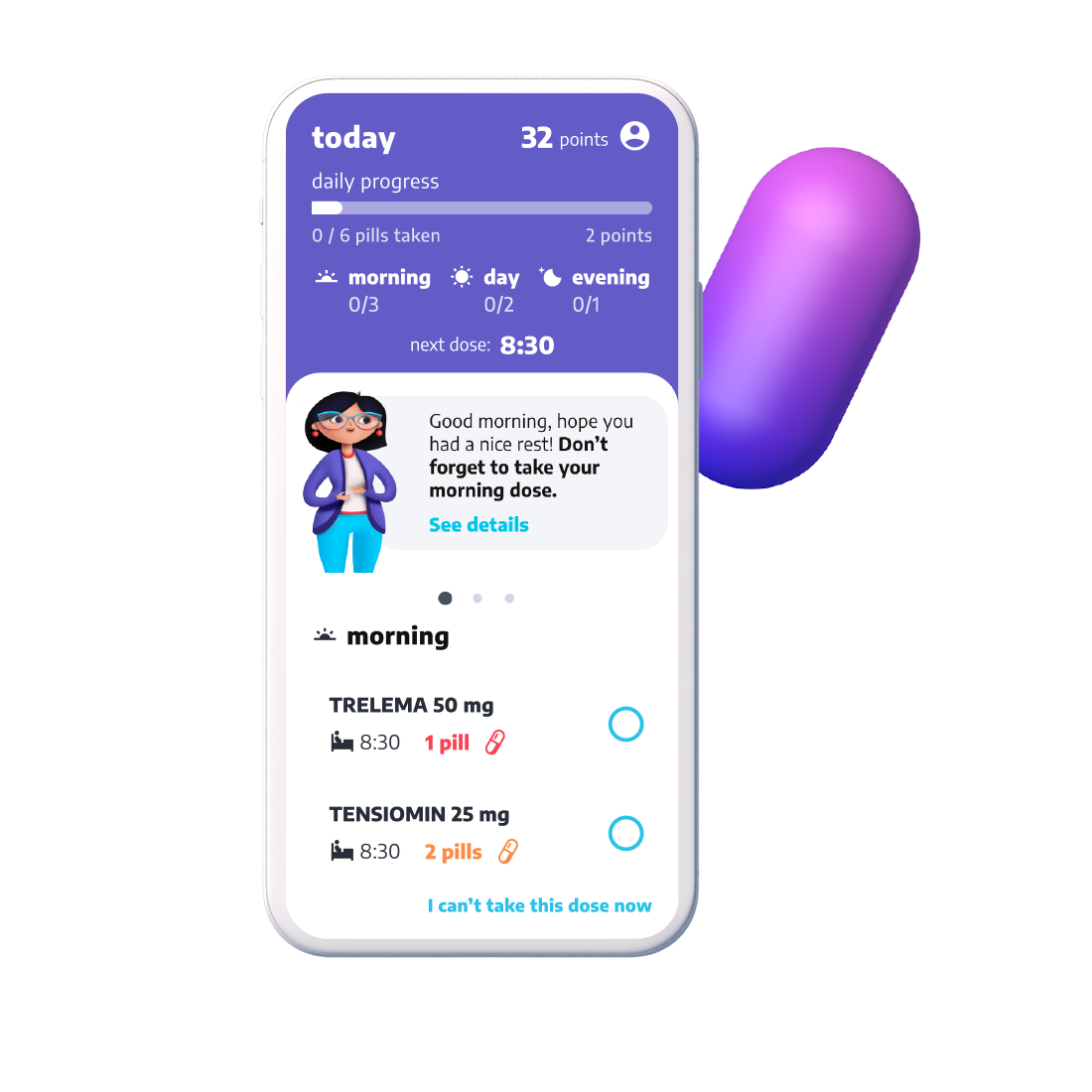
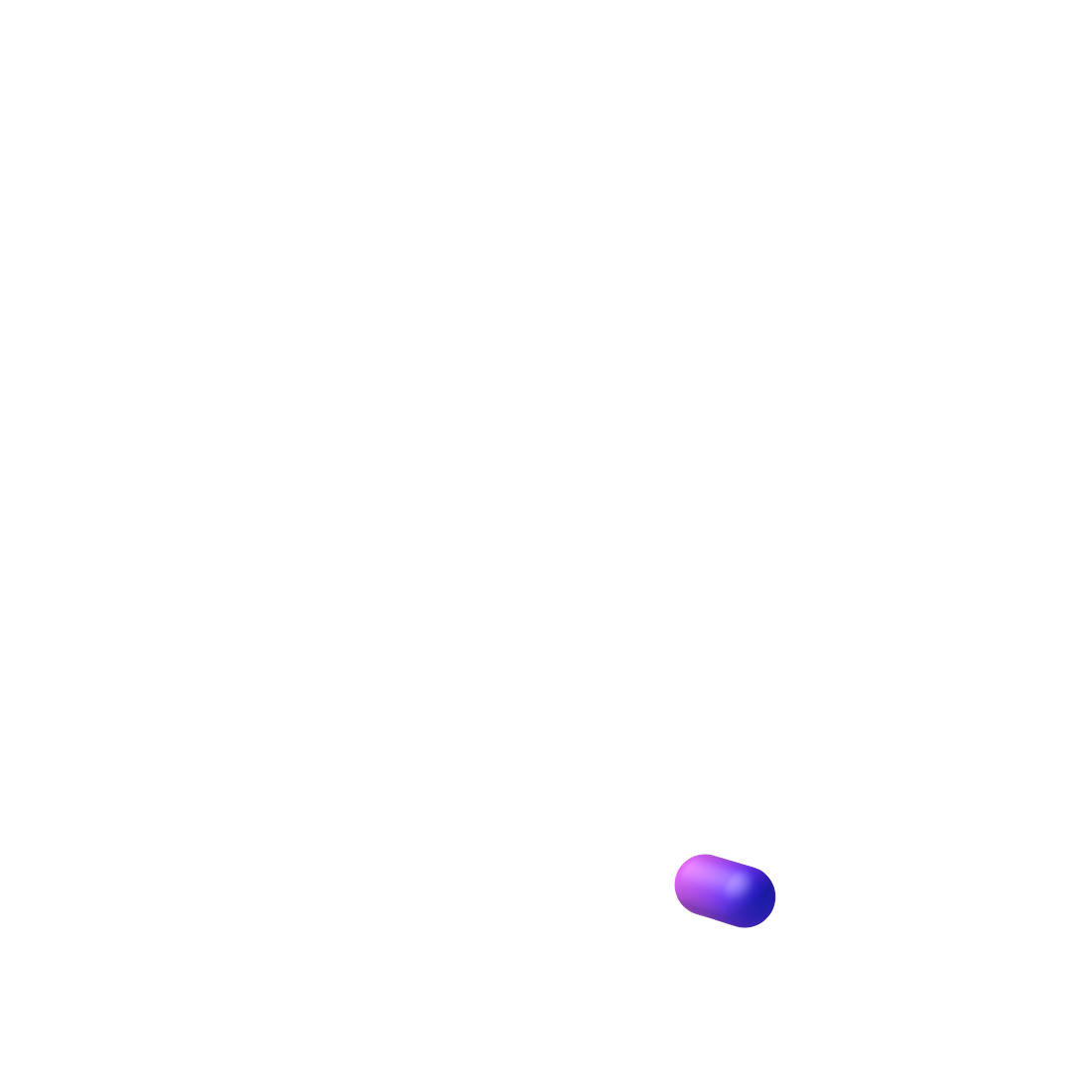
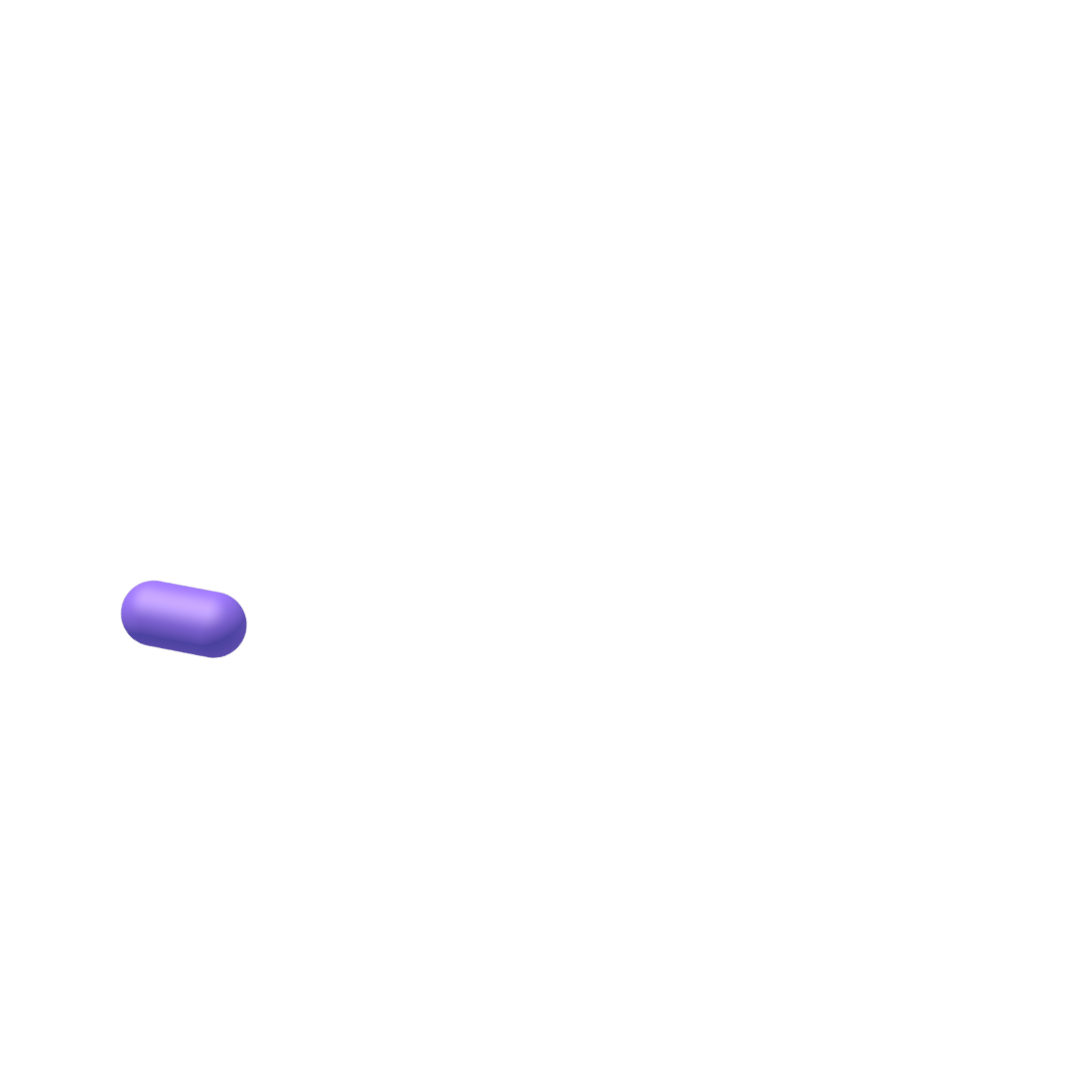
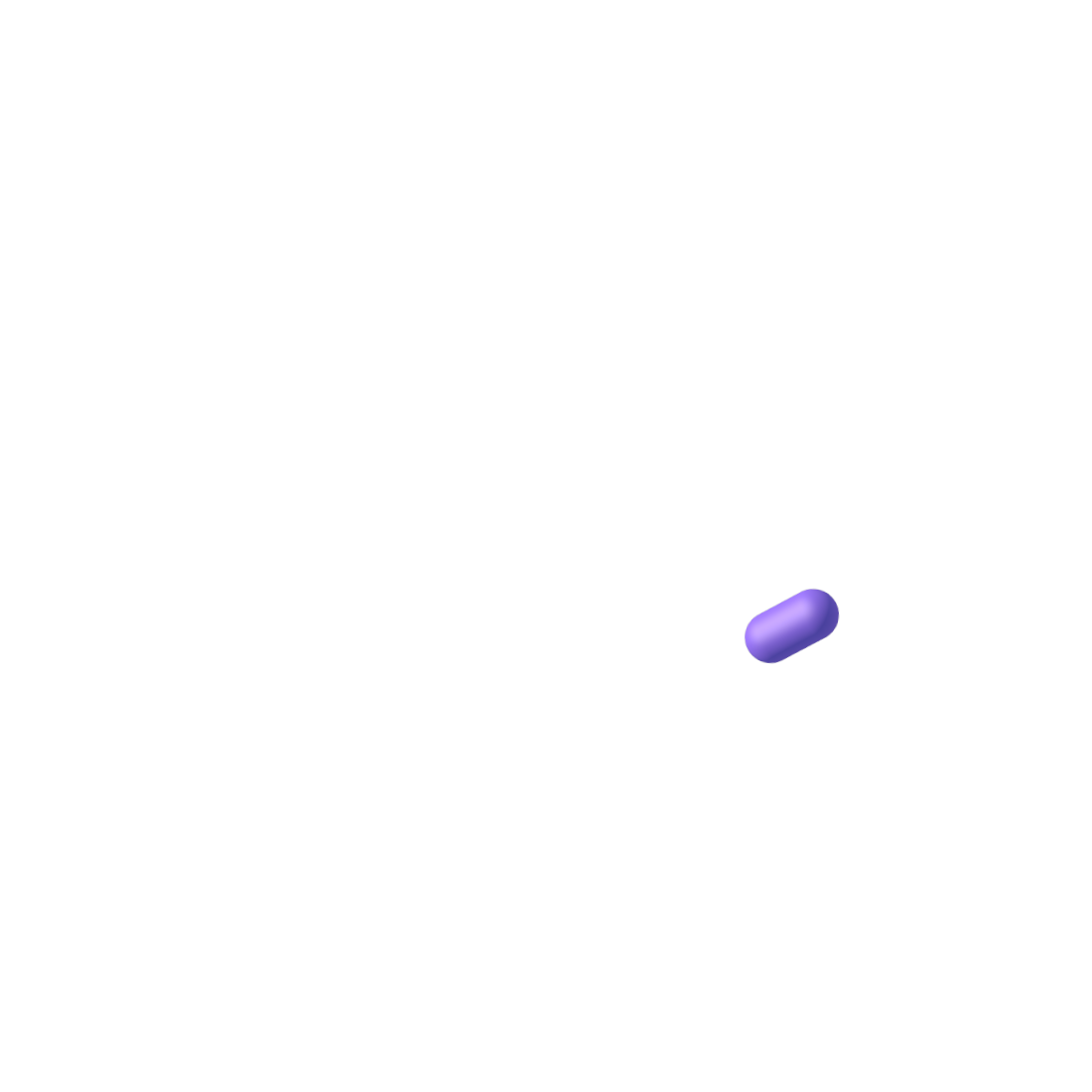

Supercharge teamed up with EGIS Pharmaceuticals, a leading pharmaceutical company, to create an innovative habit-building app aimed at improving treatment adherence.





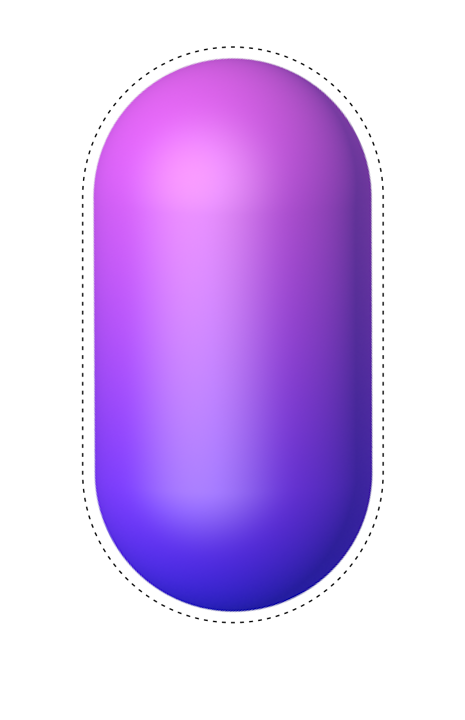
challenges

Managing hypertension requires consistent medication intake and regular blood pressure monitoring, but many patients struggle with adherence. Forgetfulness, lack of motivation, and the challenge of integrating treatment into daily life often result in missed doses, negatively impacting long-term health outcomes.
This issue is even more challenging for conditions without immediate symptoms. Without noticeable effects, patients may not feel the urgency to adhere to treatment, making it difficult to stay motivated and follow prescribed regimens over time.
Habita tackles these obstacles by seamlessly integrating medication routines into daily life. Through habit-forming techniques and gamification, the app enhances adherence, reduces cognitive load, and empowers patients to effectively manage their treatment plans.
approach

To create lasting behavioral change, we went beyond simple reminders and delved into the psychology of habit formation. By leveraging the extended habit loop framework, Habita guides users through a structured habit-building process that makes healthy routines second nature. This approach ensures that managing medication becomes effortless, intuitive, and seamlessly integrated into daily life.

1. Triggers: setting off routines with the right triggers:
Habita links medication intake to daily habits, like morning coffee or brushing teeth, making adherence effortless.
2. Motivation: keeping up the drive with gamification:
A challenge-based system keeps users engaged, starting with simple goals and gradually increasing difficulty. This sense of progress fosters long-term adherence.
3. Ability/response: minimizing user effort with smooth interactions:
Logging medication is effortless with a one-tap system, reducing cognitive load and making adherence easy—even for multiple prescriptions.
4. Accomplishment and rewards: supporting habit formation with rewards:
The app provides instant feedback, and structured levels reinforce consistency. Users unlock valuable health insights as they progress, keeping them informed and motivated.
solution

Developing a new habit takes time, perseverance, and seamless integration into daily life. The Habita app serves as a personal virtual companion customized to each user’s needs. It helps patients establish consistent medication routines by reminding them to take their pills, monitor blood pressure, and schedule doctor’s appointments—guiding them through the entire habit formation process.
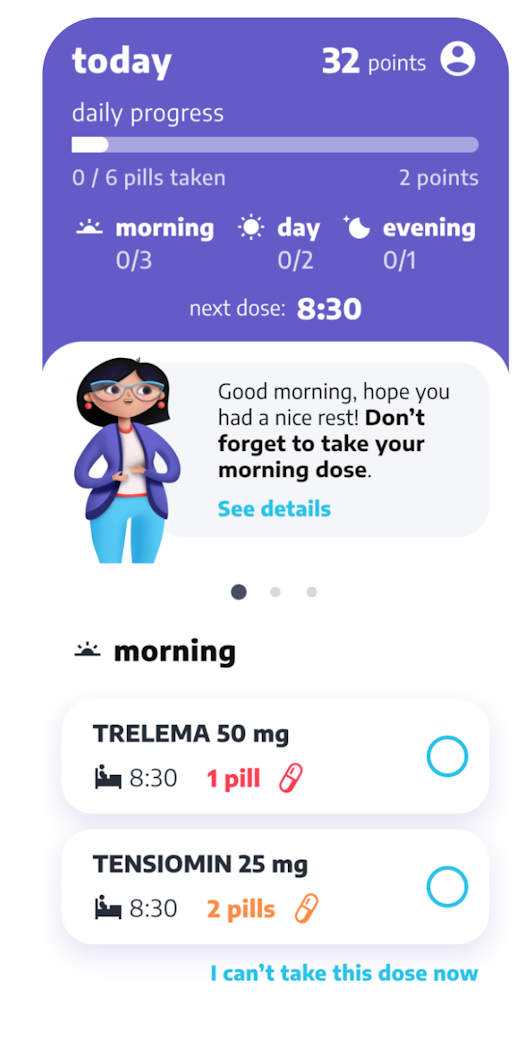
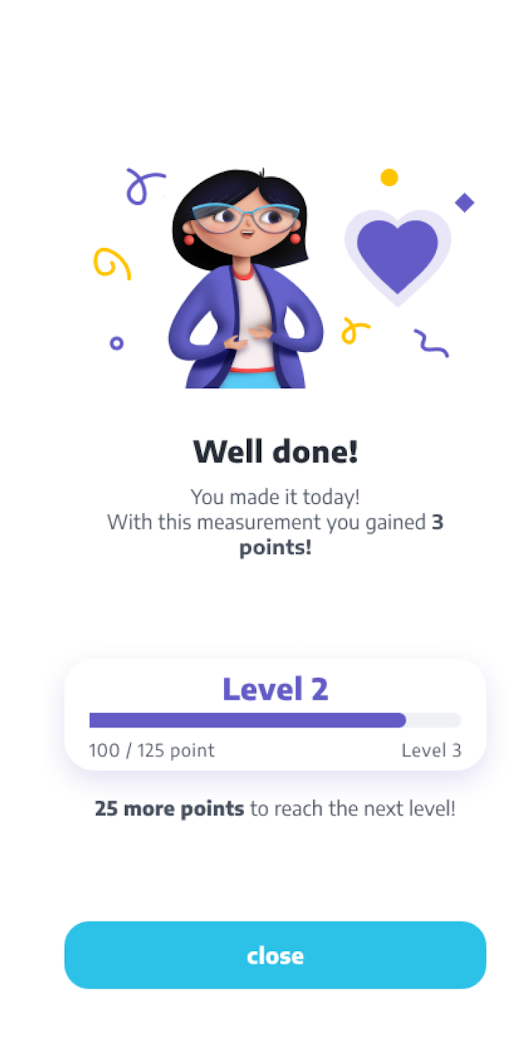
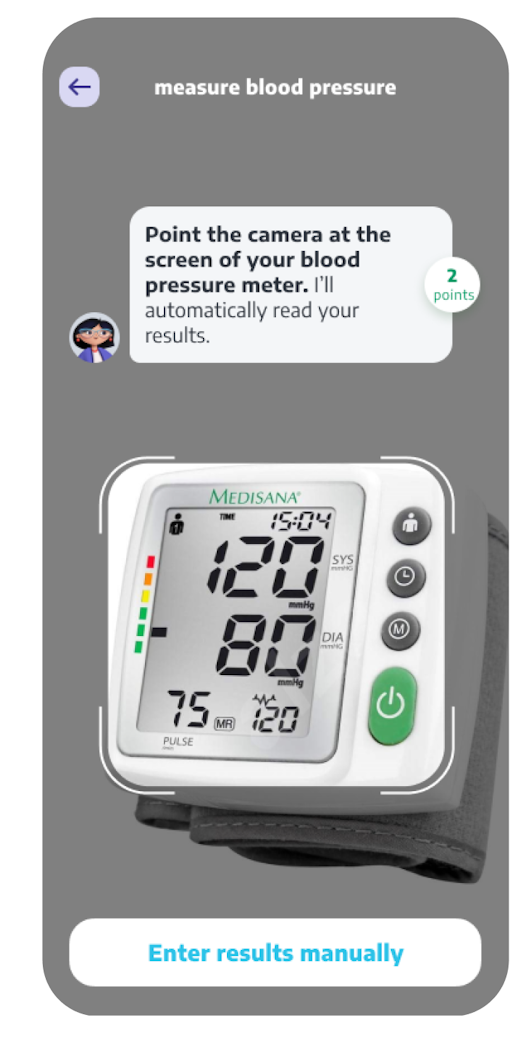
The onboarding process of Habita begins by understanding the user’s prescribed medication schedule to ensure timely reminders. It also helps users track their blood pressure, motivating them to stay consistent with their health regimen by highlighting progress and achievements.
impact

The Habita app is already helping thousands of users establish daily medication routines, reducing the risk of future complications. Beyond individual support, it also streamlines patient care, offering valuable assistance to healthcare professionals.
share this post on